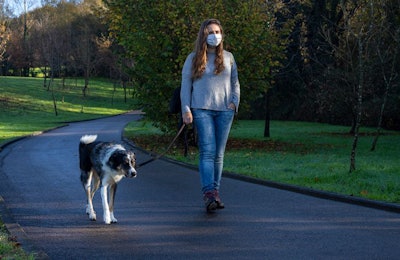
Pets starred in one of the best phenomena emerging from the general devastation and anxiety of 2020: the rise in pet ownership, at least in developed markets, as COVID-19 lockdowns drove many people to add furry companions to their households.
For example, in the U.S., the share of pet-owning households increased by 4.4% in 2020, according to data from Packaged Facts, reaching 56.4% of households. That was after at least two years of flat ownership of about 54%.
This feel-good story appeared throughout media around the world in 2020. Yet now, most media coverage of pet adoptions is creating the opposite of good feelings: More stories are reporting high numbers of “pandemic pets” being surrendered to shelters. Is this a reversal of one area of fortune in 2020?
New or first-time pet owners behind most surrenders?
Google “pandemic pets,” and you’ll likely find stories of an increase in pet surrenders around the U.S. and other markets. In a recent “USA Today” article, Jordan Mendoza included comments from directors of two U.S. animal shelters—one in Colorado, one in Virginia—experiencing higher returns of adopted animals, including double the normal amount for Moms and Mutts Colorado Rescue.
Aron Jones, executive director of Moms and Mutts, told Mendoza that many of the pets being surrendered were young, about 1 year old. “The trends that we’ve seen in the people who adopted, either they didn’t have any other dogs or pets or they were first-time dog owners, and I think that was the biggest thing,” she said.
In other words, they were unprepared for the responsibilities of having a pet, including proper training of it, which is especially important with dogs.
In the U.K., scientists at the Royal Veterinary College conducted a survey of more than 6,500 adults who purchased a puppy between March and December 2020, comparing their motivations and behaviors around their decision to get a dog with other owners who acquired a dog during the same period in 2019. “Participant responses suggest that two out of every five puppy purchases were influenced by the pandemic; in fact, one-tenth of new puppy owners had not even contemplated pet ownership before the pandemic,” wrote my colleague, Tim Wall.
“During the pandemic in 2020, demand altered the pet market, reducing owner preparation and diligence as people scrambled to buy what puppies they could without investigating the source or even seeing the young dog,” he added. “Instead, 28.3% of pandemic puppy buyers relied on videos to make their decision about purchasing a dog, up from 6.6% before the pandemic. One quarter of puppies were purchased without seeing the mother.”
One reason for pet surrenders—in the U.K., U.S. or elsewhere—is the situation confronting new pet owners needing or choosing to return to workplaces outside their home. Again, indicating that the owners didn’t train their pets or plan for what to expect, they now don’t know how to ensure the pets, accustomed to having their humans around 24/7, can weather suddenly being alone for hours on end. A dog dealing with separation anxiety may bark nonstop, destroy furniture or other household items, or lick itself to the point of harm, for example.
In other pet surrender cases, financial difficulties may be playing a role, as some people continue to struggle to find jobs or make enough income. This also sometimes arises from a lack of preparedness or education before adopting: Several studies since late 2020 have indicated that some new owners overlooked or didn’t investigate the cost of caring for a pet responsibly.
How pet food brands can help
All the reports about surrenders of pandemic pets are concerning. The good news is that they may be mostly anecdotal or just spot situations. In her “USA Today” article, Mendoza cited data from Best Friends Animal Society showing that pet surrenders to date in 2021 are actually 12.5% lower than for a comparable period in 2019, before the pandemic upended normal patterns.
Similarly, an article by Michael Levenson in the "New York Times" referred to data from PetPoint confirming that surrenders in 2021 have fallen well below the 2019 numbers.
According to Best Friends, it’s not too late to keep the downward trajectory from 2019 going, by helping pet owners considering surrender see a way to keep their furry ones. “Pet owners need to work through possible separation anxiety issues, prepare pets for time alone and look into hiring a dog walker if the dog needs to go out during the day,” Eric Rayvid, the society’s director of public relations, told Mendoza. “It was common to have pets and full-time jobs before the pandemic, so there’s no reason people going back to work can’t successfully keep their pets, with some adjustments and planning.”
Pet food brands are in a strong position to help, Wall argued. “As the dynamic of the pandemic changes, dog food companies may build consumer trust and loyalty by expanding efforts to reach new pet owners,” he wrote. “Dog food brands, especially puppy formulations, may find this an ideal time to reach out to new pet owners. Considering these new pet owners tend to get information from their social networks, social media campaigns may be particularly effective at encouraging dog owners to learn their dogs’ needs.”

















